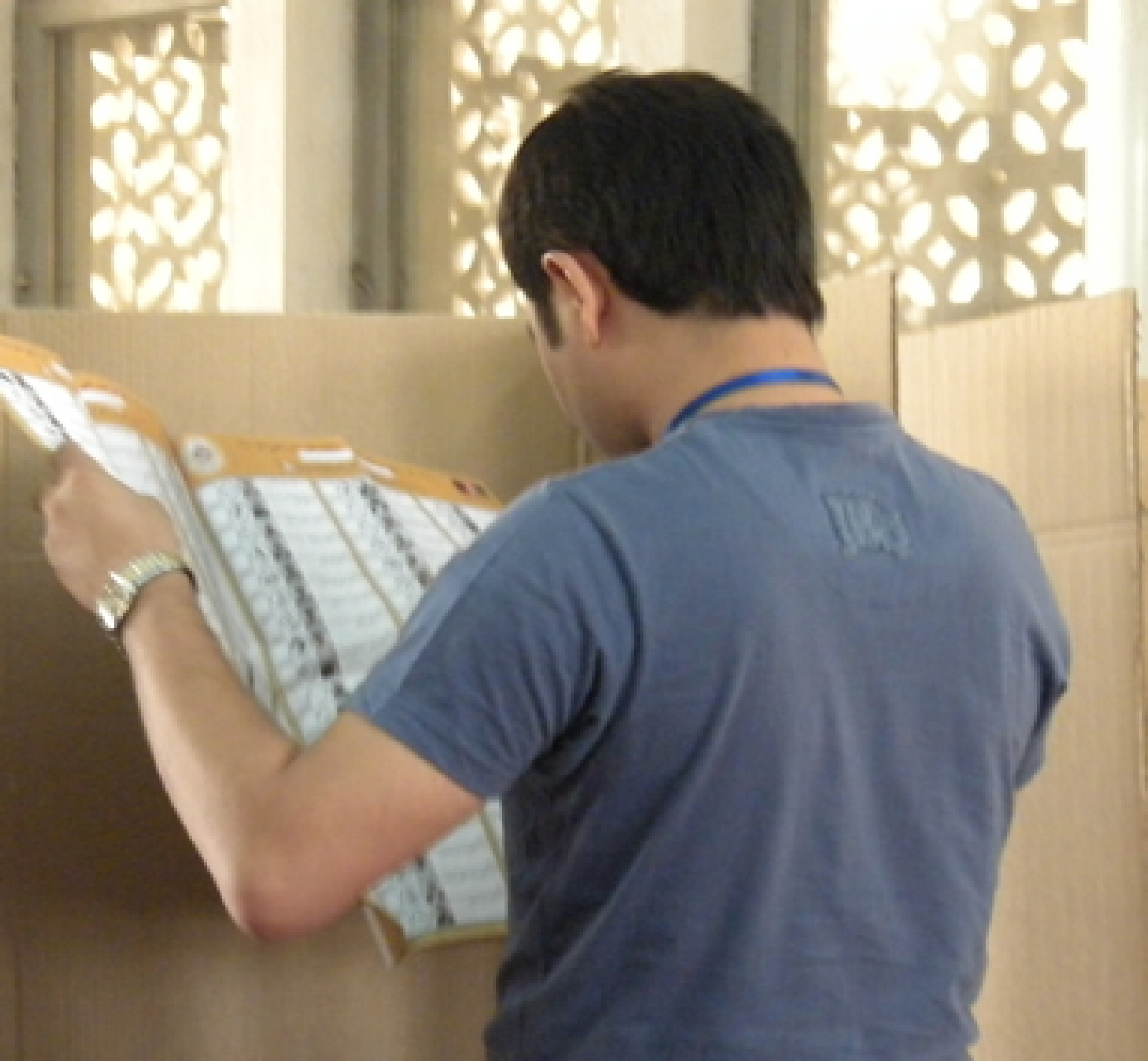
Despite delays caused by investigations of fraud in the aftermath of Afghanistan's Aug. 20 elections, the process should be allowed to run its course so that the government that eventually results is viewed as legitimate by the Afghan people, Peter Manikas, director of Asia programs at the National Democratic Institute (NDI), said in testimony to the House Foreign Affairs Subcommittee on Middle East and South Asia.
During the Oct. 1 hearing, Manikas noted that the growing concerns over delays in declaring a winner have led some in the international community to look for a shortcut to bring the elections to a conclusion. Some have recommended a power sharing deal between the top two contenders, while others have suggested that a loya jirga (grand council) could decide the winner.
"Such devices," Manikas said, "would undermine the integrity of the democratic process itself and the resulting government would have little legitimacy with the Afghan people. Moreover, to abandon the elective process at this point would be an affront to the Afghans who defied Taliban threats and risked their lives to participate in the electoral process. This election demonstrated that millions of Afghans want to take part directly in the country's evolving democratic political system."
NDI conducted an international election observation mission in the country for the Aug. 20 presidential and provincial council elections. The Institute mobilized more than 100 international and Afghan observers, covering 19 of the country's 34 provinces, to observe every aspect of the election process, including the campaign, balloting on election day and the post-election period. The group came from 11 countries on six continents and included current and former government officials, political party and election officials, legislative staff, representatives of democracy and human rights organizations, and academics. Manikas was one of the leaders of the delegation.
In his statement before the subcommittee, Manikas said:
- One of NDI's most critical findings was that violence and the threat of violence have shaped many aspects of the electoral process. "It is crucial to the growth and survival of the nation's incipient democratic process that the continuing insurgency be brought to an end," he said.
- The elections involved serious flaws that must be addressed in order to build greater confidence in the integrity of future elections.
- Despite the growing numbers of women engaging in the political process, barriers still prevent their full participation.
He also noted a number of positive aspects of the electoral process that could be built upon the help inspire future elections:
- There are strong indications that Afghanistan's political system is more competitive at every level than many have believed. Public opinion polls show that a majority of Afghans would consider voting for a member of another ethnic group.
- During the campaign, there was a focus group on issues and platforms, and the country's first national debates were seen or heard by millions of Afghans.
- Polls have consistently found that an overwhelming majority of Afghans believe that democracy is the best form of government.
If the resolution of the fraud allegations require a run-off election, Manikas said there are steps that can be taken to address some of the problems that emerged:
- Security should be enhanced to help ensure that voters can safely travel to and from polling stations, and that candidate agents and nonpartisan election observers can safely monitor polling stations and ballot counting.
- In areas where the Taliban has threatened retaliation against voters, invisible ink could be used so that those who had voted would not be so readily identifiable.
"In Afghanistan, security, stability and democratic governance are closely linked," Manikas said. "An effective counter-insurgency strategy requires a legitimate government to protect, and the legitimacy of the current government rests on its ability to retain the confidence of Afghans."
Read Manikas' statement to the Subcommittee»
NDI expressed concern about Afghanistan election fraud complaints»
Read more about NDI's mission to Afghanistan.
Pictured above: An Afghan man studies his ballot.
Published on October 1, 2009


